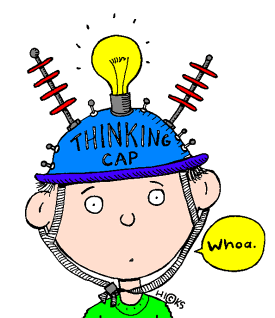This year our Teacher Learning Network sessions will focus on co-operative learning. We encourage all teachers at St Mary's College to use co-operative learning strategies in their lessons. Co-operative learning adds to group work as it helps to build the collaborative skills that students need to function in the world of today and the future. At the end of this post I have included links to some websites with ideas to get you started ...
What is Co-operative Learning?
“It is a teaching approach that organises classroom activity by arranging students in small groups so that they can support each others learning” (Brown, Thomson, 2000:105)
It is based on five principles:
Positive Interdependence (we sink or swim together)
- The success of each group member depends on the success of every member
- We do this by setting and working towards shared goals.
- A team that works together stays together.
Individual Accountability (no hitchhiking/freeloading)
- You are accountable for your own learning and for supporting the learning of the group
- You need to encourage all team members to contribute their fair share.
- You also need to help others if they are stuck.
Group Reflection (we share our experience of working in the group)
- You reflect on how well you have worked together
- How successful your group has been at achieving the task
- How might your group do better next time
Small group skills
- We are not born to cooperate; we need to learn how to work together.
- You learn and practise cooperative skills in a group as well as learning your subject
- You need to work on building a positive group atmosphere and to encourage others to do the same
Face to face interaction
- You learn through the opportunities of purposeful talk.
- Through group discussions you explore and clarify ideas and personalise information and experience.
- You also learn to accept the opinions of others and to understand other points of view.
Remember PIGSF….it is essential for successful cooperative learning groups
Research shows that when productive group work is a regular feature of lessons, pupils:
- fully develop their understanding of an idea because they have tried to explain it to others or argue a point of view;
- are more likely to develop social and team-working skills.
Group work gives pupils opportunities to:
- practise and to learn from each other;
- develop a sense of empathy and to understand other views;
- develop problem-solving skills
Effective group work requires preparation by the teacher. Pupils need to be helped to develop the skills needed for working with others and so benefit from learning in this way.
Pupils are more likely to work effectively in groups if the teacher:
- provides clear structures in which groups can operate;
- uses strategies that support positive behaviours and develop group-work skills;
- establishes clear rules and procedures;
- introduces tasks so that outcomes are clear and linked to the behaviours required;
- selects groups to suit the task;
- maintains momentum by effective intervention;
- sets group goals.
"There is firm evidence that co-operative group work is effective in improving attainment compared with pupils working alone." (Johnson and Johnson 1999)
Research has shown that cooperative groups should be somewhat, but not too, heterogeneous with respect to student ability. Groups composed of high and medium, or medium and low, ability students gave and received more explanations than students in high-medium-low ability groups. (Webb 1991; Askew and William 1995).
Websites:
 Friday 10th December is Human Rights Day. The theme is human rights defenders who act to end discrimination. Human rights defenders acting against discrimination, often in the face of great personal risk to both themselves and their families, are being recognized and acclaimed on Human Rights Day, 10 December 2010.
Friday 10th December is Human Rights Day. The theme is human rights defenders who act to end discrimination. Human rights defenders acting against discrimination, often in the face of great personal risk to both themselves and their families, are being recognized and acclaimed on Human Rights Day, 10 December 2010.  For you mountain lovers out there Saturday 11th December is International Mountain Day. International Mountain Day is an opportunity to create awareness about the importance of mountains to life, to highlight the opportunities and constraints in mountain development and to build partnerships that will bring positive change to the world’s mountains and highlands. For more information check out the website.
For you mountain lovers out there Saturday 11th December is International Mountain Day. International Mountain Day is an opportunity to create awareness about the importance of mountains to life, to highlight the opportunities and constraints in mountain development and to build partnerships that will bring positive change to the world’s mountains and highlands. For more information check out the website.













